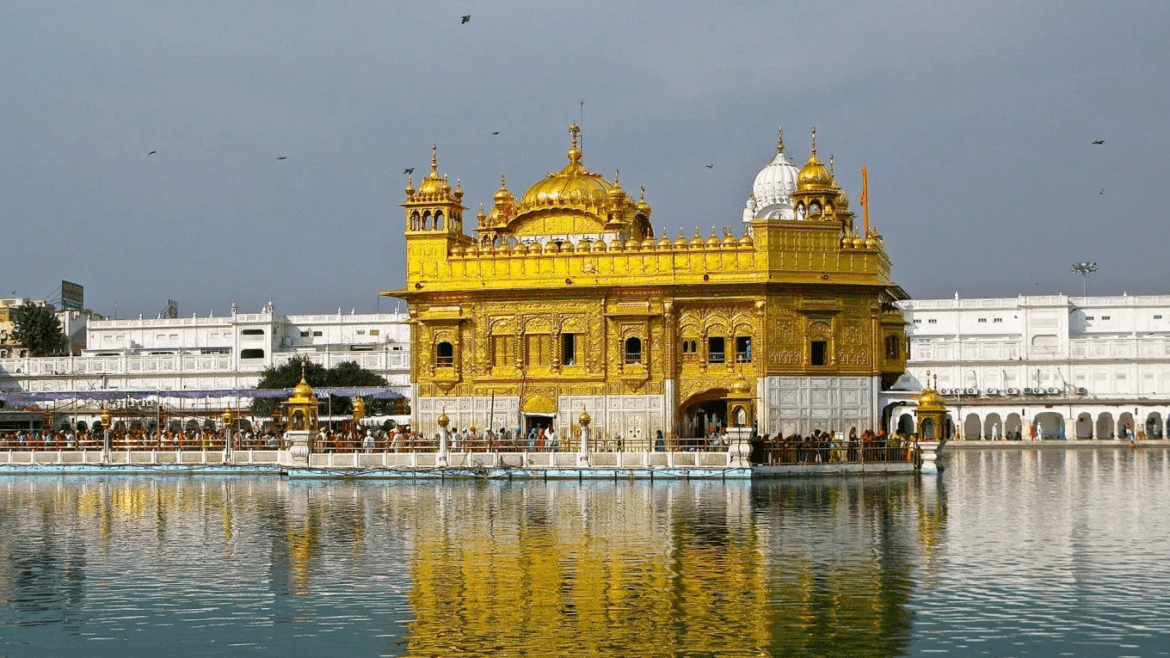AI Generated Summary
- The SGPC is accountable to the Sikh community and works to ensure that the langar program is run efficiently, sustainably, and with the highest standards of hygiene and cleanliness.
- In a country where millions go hungry daily, the Langar program is a beacon of hope and an example of how faith-based initiatives can bring about positive societal change.
- The Golden Temple’s langar program is not only an example of Indian hospitality but also a demonstration of how religious institutions can contribute to creating a more equitable society.
Amritsar is a city in northwestern India best known for the Golden Temple, one of the most revered religious sites in the country. But the temple is more than just a place of worship; it is also a symbol of the city’s efforts to combat hunger. The temple’s Langar, or communal kitchen, serves free meals to anyone who visits, regardless of religion, caste, or social status. In a country where millions go hungry daily, the Langar program is a beacon of hope and an example of how faith-based initiatives can bring about positive societal change.
The Sikh community founded the Golden Temple and the Langar Kitchen almost simultaneously. The philosophy behind the creation of the Langar was to provide free, nutritious food to anyone who visited the Golden Temple, regardless of their caste, religion, or social status. The Langar embodies the Sikh belief in “seva,” which means selfless service to the community. The Langar also manifests Sikhism’s core tenet of equality, which opposes social and economic disparities. The Langar is a well-organized kitchen that operates 24/7 and serves free food to an average of 100,000 people daily. The kitchen runs on donations from Sikh communities worldwide, and every contribution is humbly accepted. The cooking, serving, and cleaning system is harmonized, and volunteers from all backgrounds participate throughout the day. No one is paid for their work, and no one is ever turned away from the Langar. On festivals and holidays, the number of people served can exceed 500,000. The Langar’s menu consists of simple yet nutritious vegetarian food. The menu consists primarily of rice, lentils, vegetables, and flatbread, with a dessert or snack. Everything is prepared using traditional methods, and fresh ingredients are used to maintain quality and nutrition.
Langar’s impact goes far beyond just feeding people. It fosters a sense of community, unity, and equality. People of all religions, castes, and social standings sit and eat together, sharing the same food and space. The Langar’s inclusive atmosphere even extends to the kitchen, where the humble tasks of peeling garlic or washing dishes are done together without any sense of hierarchy. The Langar is a place where fundamental human values such as kindness, compassion, and generosity are celebrated, and those who partake in its offerings feel physically and spiritually nourished.
The Golden Temple’s langar program is not only an example of Indian hospitality but also a demonstration of how religious institutions can contribute to creating a more equitable society. The program’s success is partly due to the temple’s organizational structure, which operates on a fully decentralized system. The temple is managed by a democratically-elected body of Sikhs known as the Shiromani Gurdwara Parbandhak Committee (SGPC), which oversees the temple’s operations and finances. The SGPC is accountable to the Sikh community and works to ensure that the langar program is run efficiently, sustainably, and with the highest standards of hygiene and cleanliness.The Langar has had an impact far beyond Amritsar. It has inspired similar initiatives in different parts of the world, such as the Langar Seva Society in Vancouver, Canada, and the Dalit Welfare Organization in Chennai, India. Langar has shown that hunger is not a problem that needs to be tackled only by governments and NGOs but can be addressed as a community. Langar has also demonstrated that a simple act of kindness can profoundly impact society.
Amritsar’s Langar is an extraordinary example of how religion can inspire social and humanitarian initiatives. It shows that we can find ways to uplift our communities and promote equality even in the face of economic and social disparities. The success of Langar’s model is that it can be done without financial investment or specialized technical expertise. It is simply an expression of the love and compassion that lies at the heart of Sikhism. Amritsar’s Langar stands out as a testament to the infinite power of kindness and generosity in a world where millions suffer from hunger and poverty.
Sources
1. “How the Sikh Community Is Feeding 1m People a Day in India amid the Coronavirus Crisis.” The Independent, Independent Digital News and Media, 3 May 2020
www.independent.co.uk/news/world/asia/coronavirus-india-sikh-community-meals-hunger-a9491321.html




